Hungama: The club celebrating London's LGBT South Asians
- Published
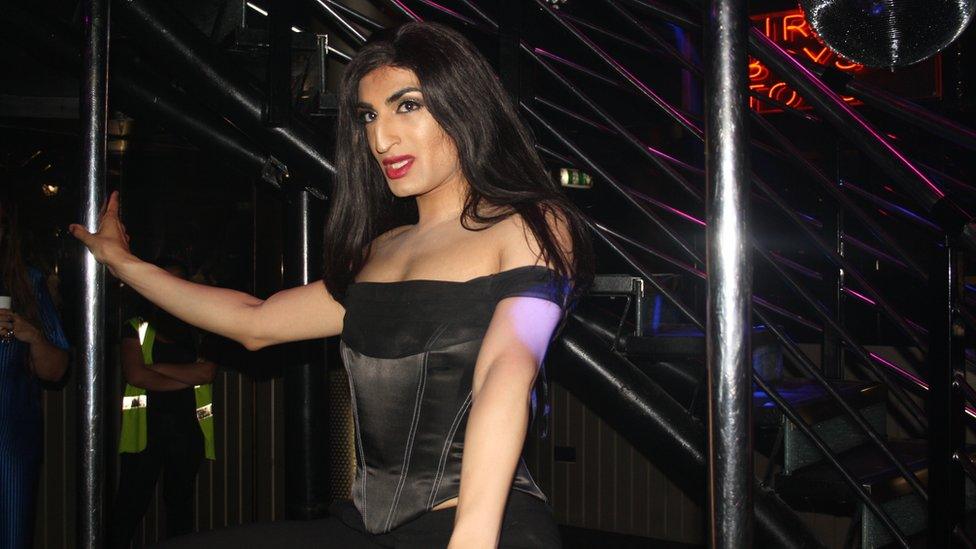
Dancer Raheem Mir performed at the night at Metropolis in East London
When Ryan Lanji moved to London eight years ago, he quickly familiarised himself with the city's LGBT nightlife, but soon found something missing.
"When I was younger... I always had to divide my personality. I was gay outside the house and Asian inside the house," the Canadian-born fashion and art curator says.
In the creative heart of east London he struggled to find a place where he could celebrate both his culture and his sexuality.
"I decided I wanted to create a space where it wasn't necessarily about orientation but about being every facet of who you are," he says.
So last year, Ryan created Hungama - meaning "chaos" in Urdu - a Bollywood hip hop night for LGBT South Asians to party to old and new Bollywood hits, remixed with everything from pop and R&B to techno.
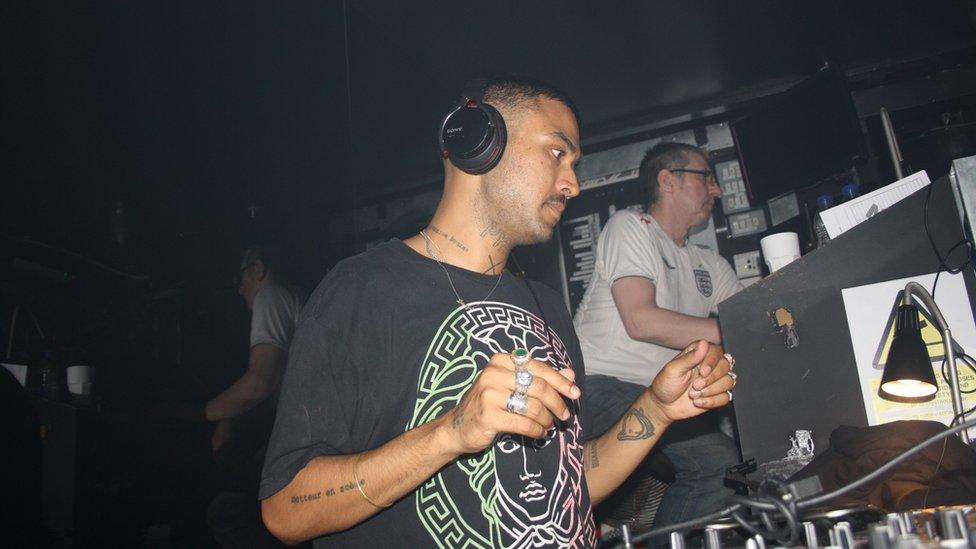
Ryan (pictured) often DJs for the nights himself
Ryan says his experiences growing up, were the reason a space like Hungama was so important.
"I was just yearning to hear some of the songs I grew up with, the songs my mum would play in the car or the songs we'd play at parties that my aunties would dance to.
"I just decided that I had the power to curate and produce an event that harked back to that and had that sense of nostalgia.
"A lot of people run away from it because they think by being gay or queer or transgender in their community, they have to leave and become another version of themselves or are only allowed to be their true selves when hidden away in secret.
"We are ready to come out and truly celebrate ourselves."
The term queer is both embraced and frowned upon. Having been seen as derogatory it is being reclaimed by some non-heterosexuals who say they don't identify with more traditional categories of gender identity and sexual orientation.
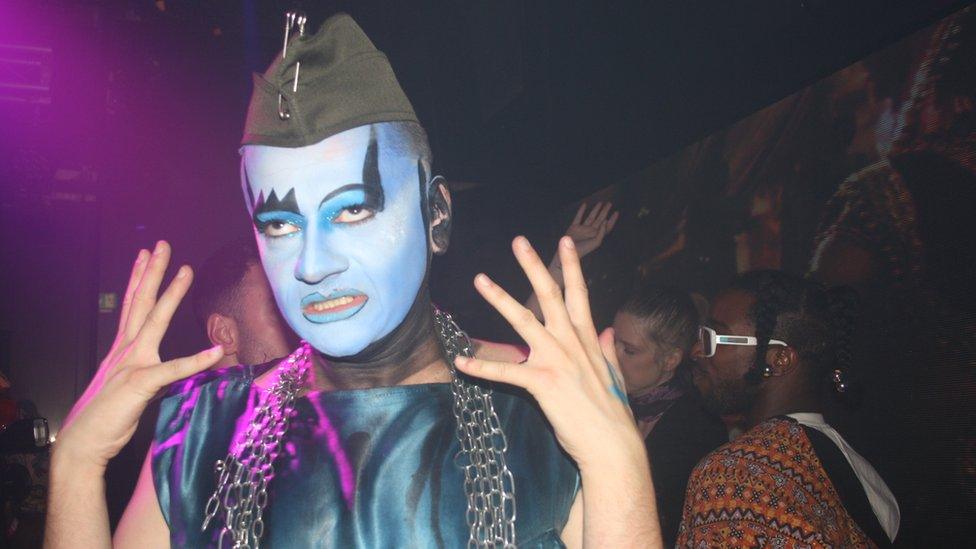
Influences from the 80s Club Kids style are regularly seen at the club nights
Clubbers say Hungama is an inclusive and safe space to express themselves.
Last month, a report by Stonewall, external revealed that more than half of black, Asian and minority ethnic people have faced discrimination in the LGBT community.
A DJ at the night, Aria Alagha, says racism is not only prominent in gay bars and spaces, but also on dating apps where he says people of colour often face extreme stereotypes.
"I believe they actually stem from pornography because porn sites have these categories, which have then seeped into the dating apps.
"It's like a smorgasbord of trouble and really problematic ideas around attraction."
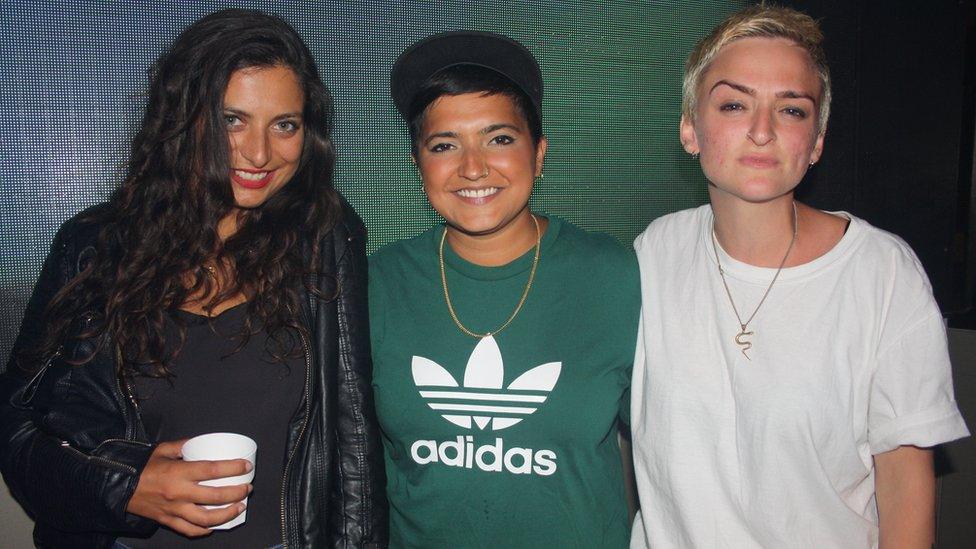
Reeta Loi (middle), the founder of Gaysians UK was also a DJ for the night
British-Pakistani singer-songwriter Leo Kalyan, another DJ at Hungama, says he's also "had my fair share of discrimination" from the LGBT community.
"It's just part and parcel of being a person of colour in 2018, there's discrimination from all sides. From within your own community and from society at large in different places of the world." he says.
"The LGBTQ+ (lesbian, gay, bisexual, transgender, queer/questioning) community as we see it is very white-washed. There's no space for people of colour, whether they are black, brown or any other shade in between.
"Hungama is really pushing a conversation forward. That's why it's so important."
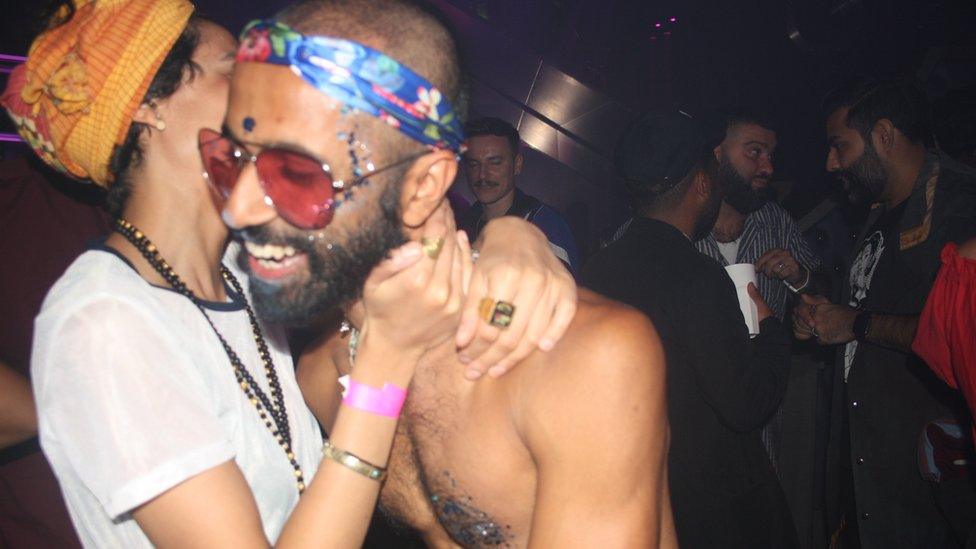
Ryan says the feedback he has received has been incredibly reassuring.
"After the first night, I got loads of messages on Instagram from people.
"One of the most powerful ones was from someone I believe to be Caucasian and he said: 'Thank you so much for throwing a night like that. I wish my friend who is Asian, had something like this available to him back in the day because he got married to a woman and maybe he wouldn't have done that if he knew there was culture on the other side'."
Ryan says the purpose of these nights is to provide a voice to the people who need it, and while it focuses on South Asians, Hungama is open to everyone.
"I wanted to prove with Hungama that they're allowed to keep their heritage, they're allowed to keep their upbringing and they're allowed to keep their cultural values.
"Our community, because of the fact that we're built on people who are different, will accept it and will participate and enjoy it and not appropriate it.
"Queer Asians are welcome and it is for them but what I'm doing is curating a room full of people who care about them. A room full of people who appreciate them and their culture."
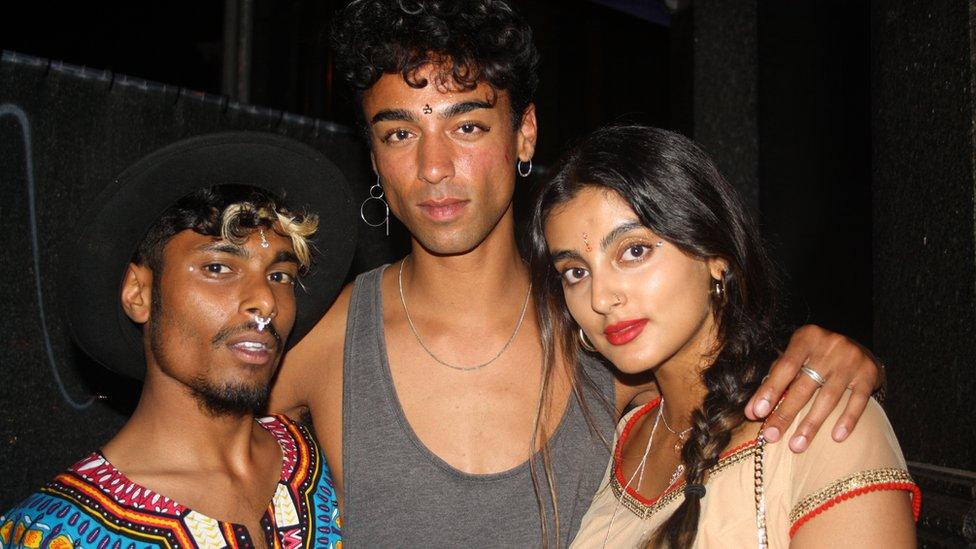
Anthony, Oliver and Nikkita (left to right) have attended the night
The nights, which have previously been held at some of east London's most notable gay clubs like The Glory, Metropolis and Visions are attended by a number of people of different races and sexualities.
"I think one of the things we all like to do is dance and one of the things we all like to do is celebrate, so that is a very objective and beautiful place to spiritually connect with someone," says Ryan.
"Everyone knows what it's like to not belong at some point in their lives."